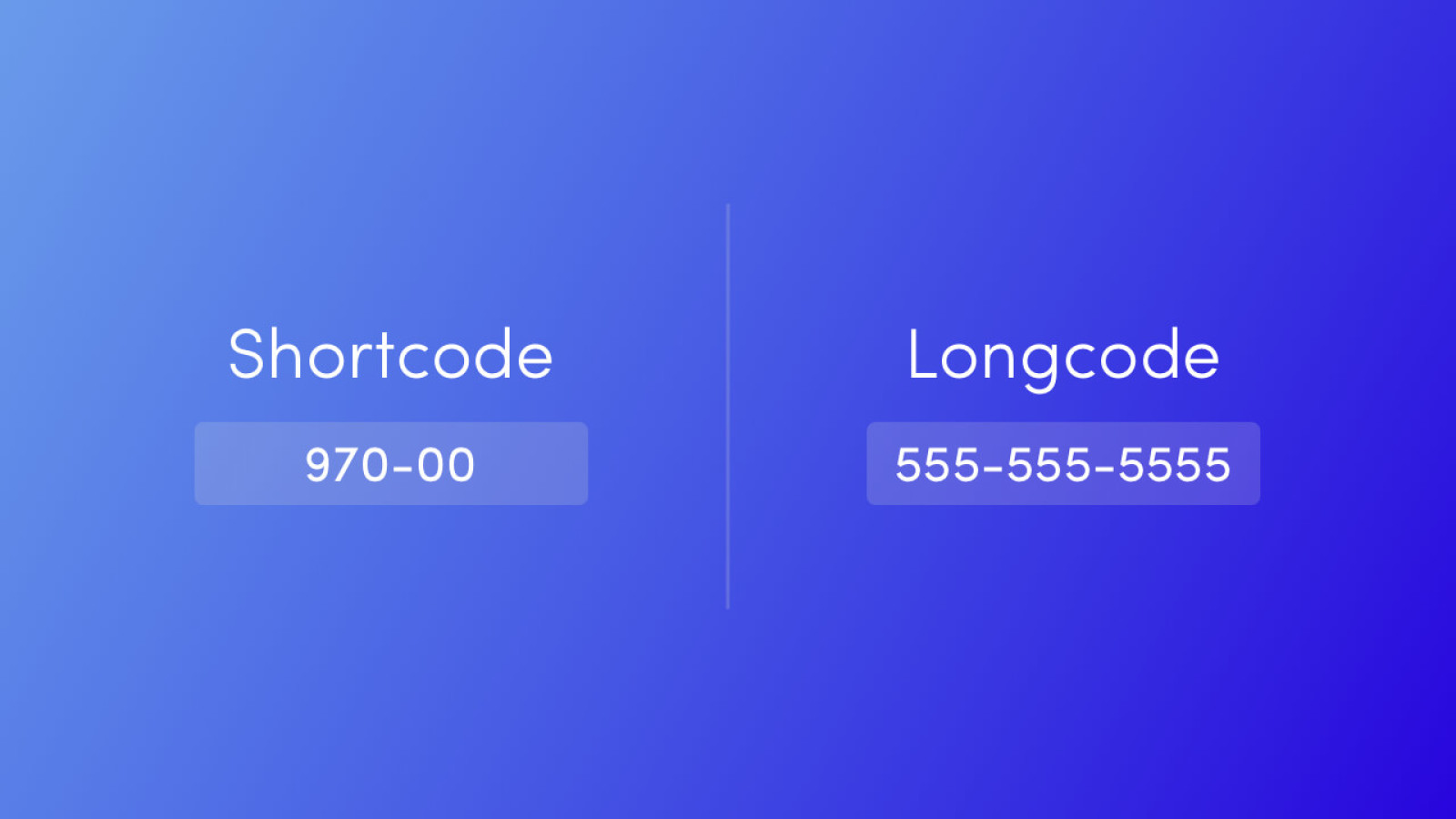Short Codes vs. Long Codes


Updated May 2023
If you use texting software, you're sending messages from a short code, long code, or both. So, which texting number is best? The answer is conditional and unique to each church's particular use cases and budget.
What is a short code?
A short code is a 5-digit number, and it's the single best option for high-message-throughput, reliable, non-carrier-filtered, emoji/multilingual-supported, two-way mass texting. Short codes are the easiest option for people to engage with, and the fastest way to text by a significant margin. All short codes in the U.S. are leased with the Short Code Registry, and you can lease numbers on a quarterly, semi-annual, or annual basis, but you don't own them.
Clearstream offers dedicated short codes, which are used solely by your organization. We are a vetted Premiere Partner with the Short Code Registry, and our short codes have an average throughput of 300 messages per second, which is insanely fast. We've mastered provisioning dedicated short codes for churches, and typically see the carrier approval process completed in 2-4 weeks, which is faster than the industry standard of 6-8 weeks. We're also the most affordable option for leasing a dedicated short code. Most providers charge setup and pass-through carrier fees, but Clearstream covers those costs for you.
What is a long code?
A long code is a 10-digit number. Long codes typically include a local area code and are a more affordable option for mass texting on a budget. There are a few benefits to using a long code: mass texts feel more personal, people can save the number to their phone, and they make for a convenient way to start two-way conversations.
We register all long codes as A2P 10DLC numbers. If you aren't provisioning a dedicated short code, this is the best option for non-carrier-filtered, emoji/multilingual-supported, two-way mass texting. Every Clearstream account, including subaccounts, comes with its own A2P 10DLC number.
What is A2P registration?
A2P 10DLC is a registration process required by carriers when using 10-digit local numbers for mass texting. If your eyes are glazing over already, hang tight. Here's a quick summary: Carriers are prone to block mass messages from unregistered numbers. With a registered long code, you'll see less spam and faster message throughput. Clearstream eats any registration costs, so there's no added cost for you. For more information on how this works, visit our A2P landing page.
Should I use a short code or a long code?
The answer depends on how you use texting. If you're a church plant, you likely won't be using a dedicated short code. And if you're a mega-church, you probably won't use a long code only. But it's not black and white, so here are a few things to think through before you decide.
Cost - While we're big advocates of dedicated short codes, the cost is substantially more ($500/mo for a random number or $1000/mo for a custom number). The Registry is who controls all short codes in the U.S., so we don't set these prices. This fee is paid in addition to the cost of your monthly plan with Clearstream. When using a long code, the only cost you incur is the cost of your Clearstream plan. For most churches, an A2P 10DLC number is a great, affordable way to do mass texting really well.
Volume - Short codes are built specifically for high-volume texting. Clearstream's short codes have an average throughput of 300mps, and it took years to build a backend that could reliably provide that. Need to send a message to a list of 10k? It'll only take about 30 seconds. A2P 10DLC numbers won't have quite as great throughput, but are a viable option for smaller-scale texting (a few hundred to a couple thousand people).
Ease of Use - Short codes are simpler for your congregation to text into compared to an A2P 10DLC number. For example, imagine these two numbers below are showing on your screen during service. One is clearly easier to input into a mobile device than the other.
New here? Text Join to 94000
New here? Text Join to (580) 309-5902
Use Case - If you're using texting for low-volume interactions, like guest follow-up or collecting prayer requests, a long code works perfectly. If you're a very large church, and want to mass text your entire congregation multiple times a week, you'll want to provision a dedicated short code.
Regardless of which number option you choose, with Clearstream you always have unlimited keywords, fast throughput, direct connectivity to wireless carriers, and in-depth live metrics.